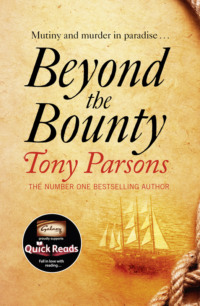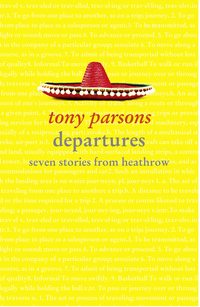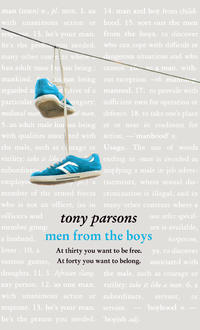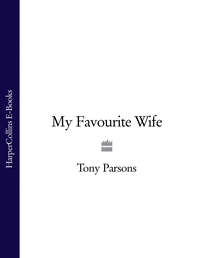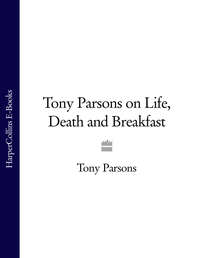
Полная версия
Man and Wife
But in old age, in widowhood, it turned out that my mum’s generation of women had an independent streak that they were never given credit for. All those housewives from the fifties and sixties, all those brides of austerity, the last generation of women who made clothes for their children – inside their sensible pastel-coloured cardigans, they were made of steel.
My mum didn’t die. My dad’s death didn’t kill her. She refused to let his death be her death too.
She saw her friends for coffee and cake, exchanged gossip with a floating social forum known simply as ‘the girls on the bus’, she knitted chunky jumpers for the neighbour’s baby, the little smasher next door – my mum thought that all babies were little smashers – she played Dolly Parton at full volume on her Sony mini stereo system.
‘Lovely voice,’ she said of Dolly Parton. ‘Lovely figure.’
She called her pack of brothers every day – it was almost impossible to reach her on the phone, she was always engaged – she fretted about their jobs, their children, their health.
My mum was living without my father, the man she built her world around. She was living her life without him. That seemed incredible to me. And, I suspected, to her too.
My dad’s death had left her maddened with grief. She cried in supermarkets, on the bus, at all the wrong times. She couldn’t help herself. She cried until the tears were all gone. But she coped. More than that, she learned to engage with life, to fend for herself, to laugh again.
‘I’m not dead yet,’ she was fond of pointing out.
Apart from the lights burning all night long – what did she think would happen to her in the darkness? – my mum carried on. Not as normal, because normal was gone now, but in a world that had changed, a world without her beloved Paddy. And she did it because my mother was a woman who didn’t just love my father. She loved people. All kinds of people.
The young neighbours and their new baby. The old woman on the other side, my Auntie Ethel, who wasn’t really my auntie at all, who was a young wife and mother with my mum, more than half a lifetime ago.
She loved those old friends who met her in the new Starbucks in the high street of the suburban town where she had made a life. And her family. All her brothers, their numbers only now starting to dwindle. The women they married. Their grown-up children, now with children of their own. And then there was me, her only child.
But above and beyond all the rest of us, my mum loved her grandson. Her Pat. My son was the best reason she had for carrying on with my old man gone.
‘He’s the love of my life, aren’t you, gorgeous? He’s my little darling.’
My son smiled patiently, reaching for the remote.
There was a kind of genius about my mother, and it was a genius for making you feel loved. Not just because her conversation was peppered with terms of endearment, all these sweethearts, loves, darlings, beautifuls and angels that seemed second nature to her and to women of her background and generation. She had a way of making you feel as though you were more important than anything else in her world, even if she was only making you a cup of tea, or smoothing your hair, or knitting you something that you would only wear when you saw her.
She was not exactly a merry widow – she spent too many days at the graveyard, and I feared that she would sleep with the lights on forever – but my mum had learned to go on living. My father’s clothes were still in the wardrobe, still not ready for the charity shops, but his spirit did not haunt this house.
My mum had finally filled it with her own spirit.
The smell of Old Holborn and Old Spice was gone. There was no longer brown ale sitting on top of the fridge and a bottle of Irish whiskey standing on top of a little chest of drawers that was known as the drinks cabinet. And the music had changed. That was what I noticed most of all. That was how I really knew that my father’s ghost had flown.
I walked into the house where I was a boy and I no longer heard Sinatra and Dean Martin and Nat King Cole. There were none of the old songs playing – Sammy Davis Junior moaning ‘What Kind of Fool Am I?’, Frank during the Capitol years, Tony Bennett’s 16 Most Requested Songs, soundtrack albums that spanned the years between Oklahoma! and West Side Story.
My mum gave all of my dad’s music to me. She had her own records to play.
My mother loved country and western. Songs with stories and tunes, songs that let you know exactly where they stood. Happy songs. Sad songs. Songs for dancing, drinking, mourning the man you had lost. She was wild for all that twangy, tear-stained stuff, although I had no idea if she had always loved it or if Dolly Parton, Tammy Wynette and Patsy Cline were new tastes. It was my old man who was the DJ in this house. MC Paddy Silver and his swinging vinyl. Not any more.
My mother had been dealt two terrible blows in recent years. She lost my father, the man she had loved ever since he came back to her East End home with one of her brothers after they had sparred together at the local boxing club. She lost the man she spent a lifetime loving, that roaring boy, that strong man who learned to be gentle. Lost him to lung cancer, lost him to time.
And although I could hardly stand to admit it to myself, let alone to her, in some crucial way she had also lost her grandson.
It was just not so easy now I was divorced. Now that Pat was living with his mother, and I was not living with either of them, it was not so easy for my son to spend endless hours with his grandmother.
With all my heart, I wished it were different. I wished it was as simple as the old days, when I was still with Gina and my mum saw Pat all the time, or even later, when Gina was trying her luck in Japan, attempting to get her life back, and I was looking after Pat alone, that time when my mum was like a mother to both of us. I wished it was as straightforward as it used to be, because I knew that Pat was the centre of my mum’s universe. But it would never be like that again. The centre of the universe had shifted.
That’s who gets forgotten in a divorce. The grandparents. These old people who worship the little boys and girls who are produced by their own grown-up, messed-up children, the fallible somehow begetting the perfect. Divorce makes grandparents feel as though all that unconditional love they have to give is suddenly surplus to requirements.
So I made an effort. I did everything to pretend that the centre of the universe was where it had always been. Half of my time with Pat was time spent with my mum. We jumped in my car and drove out to Essex, on roads that I had known all my life.
I remembered those roads when I was a child coming back from my nan’s house in the East End, asleep on the back seat of my old man’s Morris Minor. And I knew those roads as a teenager, zipping around in my Escort trying to impress the big-haired girl by my side. And later still, on those roads as a young husband and father, driving my little family out to see my proud parents. And much later, driving on those roads in my little two-seater sports car, Pat by my side, struggling against sleep, missing his mother, not wanting to talk about it.
I knew those roads. I remembered driving on them to see my dad getting sicker, my dad dying, the day of his funeral. All those car rides from London to Essex, from the edge of the city to the edge of the sea, measuring out my life, never imagining what would be coming next, never dreaming.
Now once more it was Pat and me driving out on those Essex roads to see my mum in the house where she slept with the lights on.
Gina gone. My old man gone. Cyd and Peggy not really a part of these rides out to Essex, to this old established part of our lives. My new wife and her child had their lives in London, and we left them there without even having to discuss it.
Growing up, growing old. You expect all of that. But my little family was growing smaller and more fragile. And you are never ready for that.
Pat was comfortable in the house where I grew up. Something wound tight inside him seemed to relax out here. He spent the best part of his childhood in the old house. No parents fighting, crying, going their separate ways. No great upheavals or infidelities or thrown mobile phones out here in the sprawl where the town finally gives way to the countryside. Just Star Wars videos and cups of tea, and going to the fridge without having to ask anyone’s permission. Sweet, simple hours spent sitting on the floor listening to familiar voices singing old songs in the back garden. And every moment of those easy days filled with an uncomplicated, unconditional love. First from both of my parents, and now from just my mother. The love remained.
‘He’s the man of my dreams. Aren’t you, gorgeous?’
My son smiled patiently, and wandered off to rummage around upstairs. His oldest toys were out here, many of them too young for him now. A collection of Star Wars videos of course, and plenty of stuff he would no longer watch, wrestling tapes and cartoons from Disney, gathering dust, marking the years. He had a bedroom here, stacks of clothes, and a life. He could have followed the path from television to fridge and back again with his eyes closed.
Everything was easy out here. The stilted conversations we often had over our Sunday Happy Meals were not needed. We slumped in front of the TV, my son and I, while my mum made lunch, which she called dinner, or dinner, which she called tea, or a cup of tea, which she called a nice cup of tea.
She refused our help with used cups, cutlery and dishes. Pat and I had been well trained by the women in our lives, and we did our bit around the houses we lived in without even thinking about it, without being asked.
But my mum would not hear of it. In her own home, she laid down the rules and one rule said that she did the lot. She was the boss who served. Her word was law, her way of doing things was not negotiable. Sometimes I watched her through the little serving hatch, singing a Dolly Parton song, clanging about in the kitchen, and I wanted to hug her in that fierce, unembarrassed way that my son sometimes hugged her.
We loved her, and we loved it out here because we did not have to think about anything. What a relief – to just switch off brains that had been taught to negotiate the marshland of divorce, remarriage and blended families. Can he have a Coke? Can he watch a video? Can he leave the table and does he really have to eat all of those lentils? How good it is to not have to think about what is good for you. But it never lasts.
After our star-crossed trip to Paris, my timekeeping became meticulous. Getting back to London, getting Pat back to his mother, I always allowed for road works on the A127, pile-ups on the M25, Sunday afternoon football in north London. We just couldn’t be late again.
‘Time to go home, darling,’ I told my son. And he gave me a look that you should never see on the face of a seven-year-old. More than anywhere, said the look on my son’s face, this place feels like my home.
So what’s that other place?
We left my mum just as it was getting dark, and I knew that soon the lights would be on and would stay on all night long, while my mum lay in bed humming Dolly Parton songs to keep her spirits up, and my father’s old suits waited in the wardrobe, far too precious to be given away to Oxfam.
five
Gina was waiting for me in the school car park.
She must have come straight from the office because she was in a two-piece business suit, wearing heels and carrying a battered old briefcase. She looked great, like some fashion editor’s idea of a working woman, although thinner than I ever remembered her being. My ex-wife was still beautiful, still a woman who turned heads in the street. But she looked more serious than she ever did in her twenties.
‘Sorry I’m late, Gina.’
‘It’s okay. We’re both early.’ She gave me a peck on the cheek, squeezing my arm. She had forgiven me for Paris, I guess. ‘Let’s go and see teacher, shall we?’
We went into the main school building and walked down corridors that seemed unchanged from the ones I remembered from all those years ago. Children’s paintings on the wall, the aroma of institutional cooking, distant shouts of physical exercise. Echoes and laughter, the smell of disinfectant and dirt. We made our way to the office of the headmistress without having to ask for directions. This was not the first time we had been summoned to our son’s school.
Pat’s headmistress, Miss Wilkins, was a pale-faced young woman with a white-blonde crop. With her Eminem haircut and funky trainers, she didn’t look old enough for the top job, she just about looked old enough to be out of school herself. But promotion came fast around here. Pat’s school was ringed by tough estates, and many teachers just couldn’t stand the pace.
‘Mr and Mrs Silver. Come in.’
‘Actually it’s Mr Silver and Mrs McRae,’ Gina said. ‘Thank you.’
Miss Wilkins softened us up with the usual comforting preamble – our son was a lovely boy, such a sweet nature, adored by teachers and children alike. And then came the reason why we were here.
He was completely and totally out of control.
‘Pat is never rude or violent,’ said Miss Wilkins. ‘He’s not like some of them. He does everything with a smile.’
‘He sounds like Mr Popularity,’ I said. I could never stop myself defending him. I always felt the need to put in a good word.
‘He would be. If only he could stay in his seat for an entire lesson.’
‘He goes walkabout,’ Gina said, nervously biting her thumbnail, and for a second it was as if she had been brought here because of her own misbehaviour. ‘That’s it, isn’t it? He just wanders around the class. Chatting to other children. Chatting away while they are trying to do their work.’ She looked at me. ‘We’ve been here before. More than once.’
‘May I ask you a personal question?’ Miss Wilkins said. She may have had a different kind of haircut, but she still sounded like every teacher I ever knew.
‘Of course,’ said Gina.
A beat.
‘Was it a very stressful divorce?’
‘Aren’t they all?’ I said.
We followed Miss Wilkins down the corridor. There was a small square pane of glass in the thick slab of every classroom door. Like the spyhole in a prison cell. The albino head of Miss Wilkins bobbed in front of one of them for a moment and then she stood back, smiling grimly, raising an index finger to her lips. Gina and I peered through the window into our son’s classroom.
I spotted him immediately. Even surrounded by thirty other six- and seven-year-olds, some of them with the same shaggy mop top, all of them in the same green sweater that passed for a uniform in these parts, I couldn’t miss him.
Pat was in the middle of the class, bent over a drawing, just like all the other children. And I thought about how shiny his hair always looked, like something from a conditioner commercial, even when it needed what my mum would call a good old wash.
On the blackboard the teacher had sketched a cartoon of planet earth, a chalky globe lost in all that black space, the blurry lines of the continents just about recognisable. She was writing something above it. Our World, it said.
The children were all drawing intently. Even Pat. And for a moment I could kid myself that everything was all right. There was something moving about the scene. Because of course these inner-city children came from every ethnic group on the planet. But the trouble was the drawing my son was bent over belonged to someone else. He was helping a little girl to colour it in.
‘Pat?’ the teacher said, turning from the blackboard. ‘Excuse me. I’ve asked you before to stay at your own desk, haven’t I?’
He ignored her. Still radiating that rakish charm, peering out shyly from under that golden fringe, he eased between the desks, peering over the shoulders of his classmates, flashing smiles and muttering comments to children who were all concentrating on planet earth.
‘Yes,’ Gina said, and I didn’t need to look at her to know that she was holding back the tears. ‘In answer to your question. It was a very stressful divorce.’
We did these things together.
There was no question that only one of us would go to the school, get lectured to by the surprisingly prim punk headmistress, and have to fret about our son all alone.
We were both his parents, no matter where he lived, and nothing could ever change that fact. That was our attitude.
Gina was miles better at all of this stuff than me – not feeling the need to be defensive about Pat, always communicating with the staff, opening up about our personal problems, giving anyone who was vaguely curious a guided tour of our dirty laundry, which was surely getting a bit threadbare and old by now. And I took it to heart a lot more than she did. Or at least I let it depress me more. Because deep down, I also blamed the divorce for Pat’s problems at school.
‘Cheer up, Harry, he’ll grow out of it,’ Gina told me over coffee. This is what we did. After being dragged along to the school every few weeks or so we went to a small café on Upper Street. We used to come here in the old days, before we had Pat. Now these mid-morning cappuccinos were the extent of our social life together. ‘He’s a good kid. Everybody likes him, he’s smart. He just has difficulty settling. He finds it hard to settle to things. It’s not attention deficiency syndrome, or whatever they call it. It’s just a problem settling.’
‘Miss Wilkins thinks it’s our fault. She thinks we’ve messed him up. And maybe she’s right, Gina.’
‘It doesn’t matter what Miss bloody Wilkins thinks. Pat’s happiness – that’s all that matters.’
‘But he’s not happy, Gina.’
‘What do you mean?’
‘He hasn’t been happy since – you know. Since we split up.’
‘Change the record, Harry.’
‘I mean it. He’s lost that glow he had. Remember that beautiful glow? Listen, I’m not blaming you or Richard.’
‘Richard’s a very good stepfather.’ She always got touchy if I suggested that perhaps divorce had not been an unalloyed blessing in our child’s life. ‘Pat’s lucky to have a stepfather like Richard who cares about his education, who doesn’t want him to spend all his time with a light sabre and a football, who wants him to take an interest in museums.’
‘And Harry Potter.’
‘What’s wrong with Harry Potter? Harry Potter’s great. All children love Harry Potter.’
‘But he has to fit in, the poor little bastard. Pat, I mean. Not Harry Potter. He has to fit in everywhere he goes. Can’t you see that? When he’s with you and Richard. When he’s with me and Cyd. He always has to tread carefully. You can admit that, can’t you?’
‘I don’t know what you’re talking about.’
‘The only time he’s relaxed is with my mum. Children shouldn’t have to fit in. Our little drama has given Pat a walk-on part in his own childhood. No child deserves that.’
She didn’t want to hear it. I didn’t blame her. I would like to have thought that our son’s trouble at school was nothing to do with us, and everything to do with the fact that he was a lazy git. But I just couldn’t believe it. The reason he had ants in his pants at school was because he wanted to be liked, he needed to be loved. And I knew that had something to do with me and my ex-wife. Maybe it had everything to do with us. How could I not wonder what it would have been like if we had stayed together?
‘Do you ever think about the past?’
‘How do you mean?’
‘Do you ever miss us?’ I said, crossing the line between what was acceptable and what was not. ‘Just now and again? Just a tiny bit?’
She smiled wearily at me over her abandoned cappuccino. There was no warmth left in either the coffee or her smile.
‘Miss us? You mean staying home alone while you were playing the big shot out in the glamorous world of television?’
‘No, that wasn’t really –’
‘You mean going to your launches, and your parties, and your functions and being treated like the invisible woman because I looked after our son, instead of presenting some crappy little TV show?’
‘Well, what I was actually –’
‘People thinking I was second-rate because I was bringing up a child – when what I was doing was the most important job in the world. Telling people I was a homemaker and some of them actually smiling, Harry, some of them actually thinking it was funny, that it was a joke.’
Not all this again.
‘I’ll get the bill, shall I?’
‘When what was really funny was that I had the kind of degree that these career morons could only dream about. When what was funny was that I was bilingual while most of those cretins hadn’t quite mastered English. Miss any of that? No, not really, Harry, not now you come to mention it. And I don’t miss sleeping in our bed with our little boy sleeping in the next room while you were out banging one of the office juniors.’
‘You know what I mean. Just the lack of complication. That’s all. There’s no need to drag up all that old –’
‘No, I can’t say I miss it. And you shouldn’t either. You shouldn’t miss that old life, because it was built on a lie. I like it now, if you really want to know. That’s the difference between you and me. I like it now. I like my life with Richard. To me, these are the good old days. And you should be grateful, Harry.’
‘Why’s that?’
‘Because Pat has a stepfather who cares about him deeply. Some step-parents are abusive. Some are violent. Many of them are indifferent.’
‘I should be grateful that my son is not being abused? Give me a break, Gina.’
‘You should be grateful that Richard is a wonderful, caring man who wants what’s best for Pat.’
‘Richard tries to change him. He doesn’t need changing. He’s fine the way he is now.’
‘Pat’s not perfect, Harry.’
‘Me neither.’
‘Oh, Harry. We all know that.’
We glared at each other for a few moments and then Gina called for the bill. I knew her well enough not to try to pay it.
We always did this – supported each other, tried to be friends, and then for an encore drove each other nuts. We couldn’t seem to stop ourselves. In the end we maddened each other by picking at old wounds, we turned the closeness between us into an infuriating claustrophobia.
I knew that I had angered her today. And that’s why the news she told me as we were walking back to our cars sounded like an act of supreme cruelty and spite.
‘None of this matters,’ she said. ‘The trouble at school. All that tired old crap we keep dragging around the block. None of it matters any more, Harry.’
‘What are you talking about?’
‘We’re going to America.’
I just stared at her.
‘I’ve been meaning to tell you. But it wasn’t definite. Not until this week.’
I thought about it for a while. But I didn’t understand. Not yet.
‘How long would you be gone? I’m not saying taking Pat out of school for a couple of weeks is a bad idea. Might do him some good. A break might be what he needs. It’s not as though he’s learning very much right now.’
My ex-wife shook her head. She couldn’t believe that I could be so slow.
‘Come on, Harry.’
And as we stood in that deserted school car park, I finally started to get it. I finally started to understand that my ex-wife could do whatever she liked. What a sucker I had been.
‘Hold on. Tell me you mean a vacation, Gina. Tell me you’re talking about Disneyland and Florida?’
‘I’m talking about leaving London, Harry. And leaving the country. I’m talking about us moving there for good. To live, Harry. Richard and me and Pat. Richard’s contract is ending, and he’s never really settled here –’
‘Richard hasn’t settled here? Richard? What about Pat? What about Pat being allowed to fucking settle?’
‘Would you like to watch your language? He’s seven years old. Children are very adaptable. They get used to anything.’


